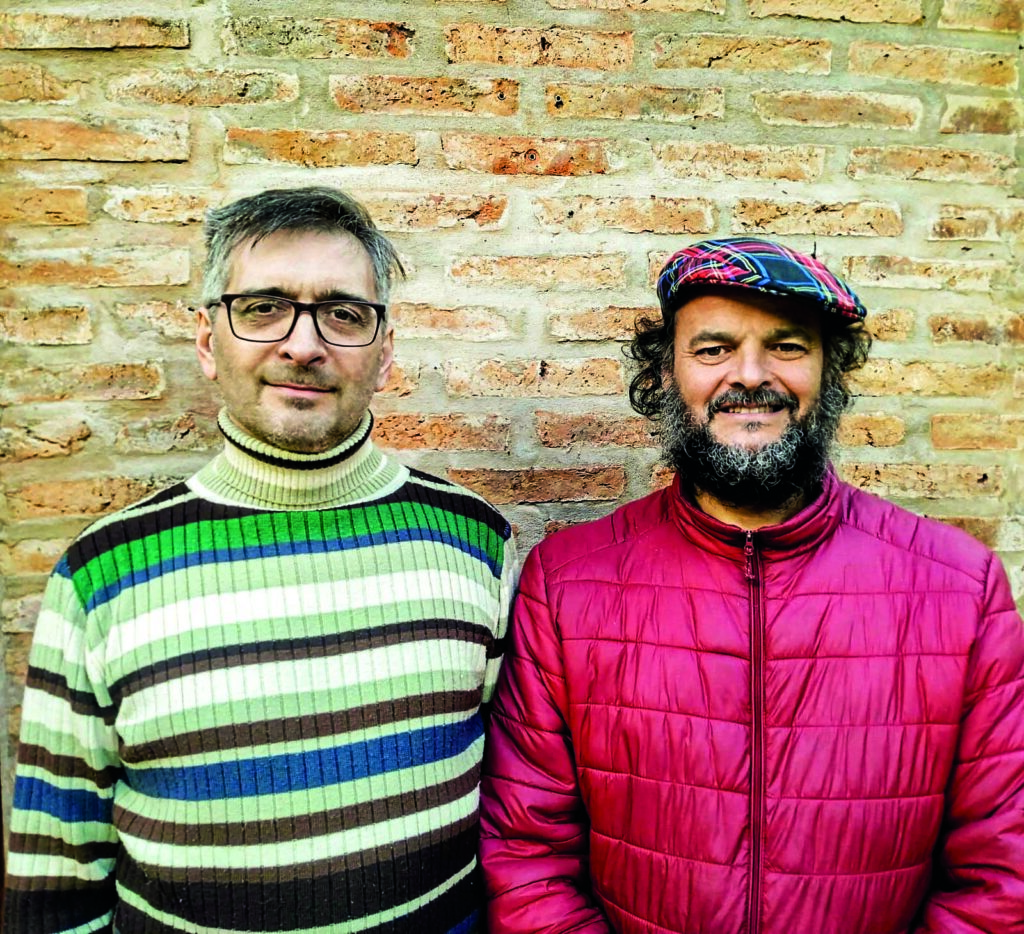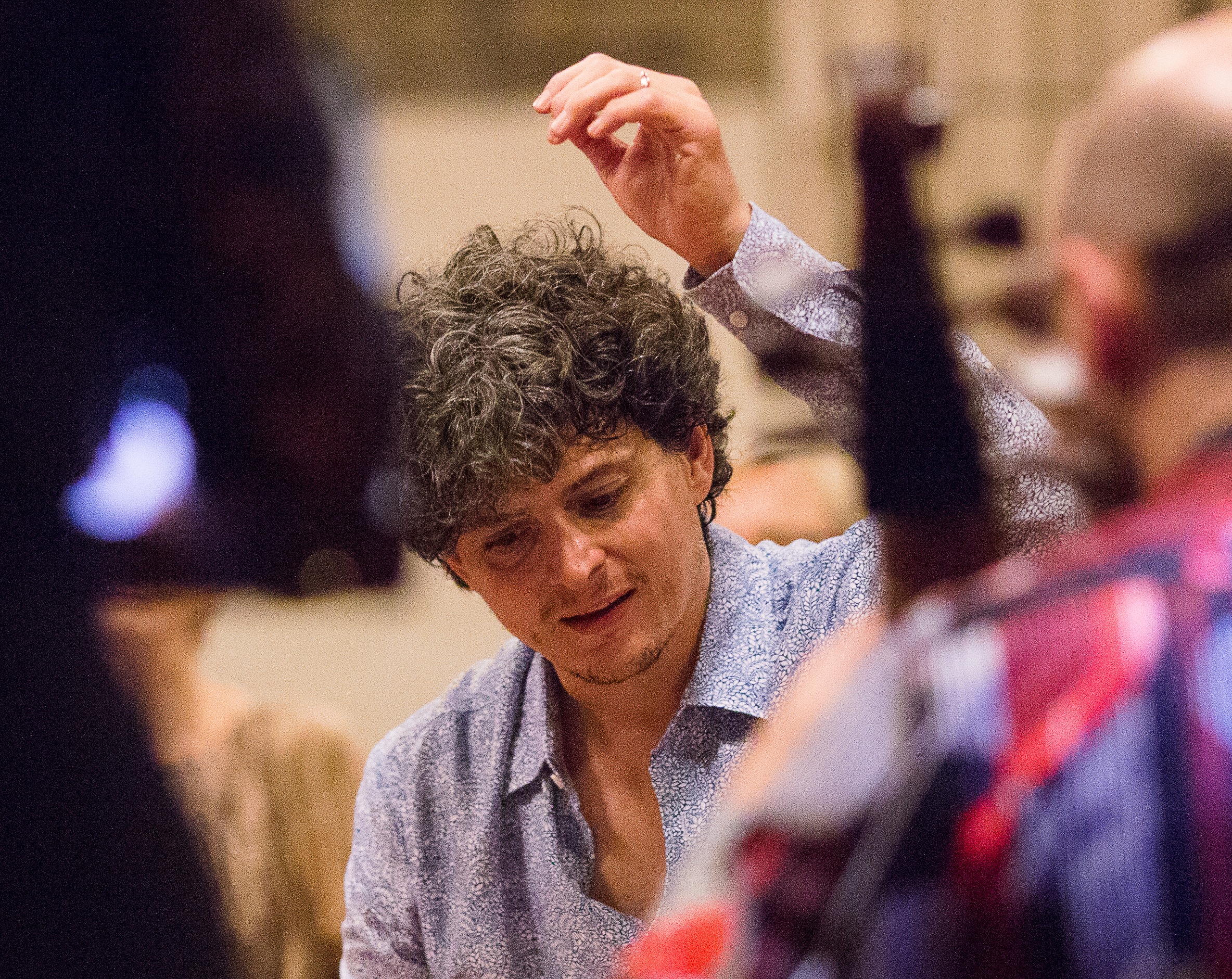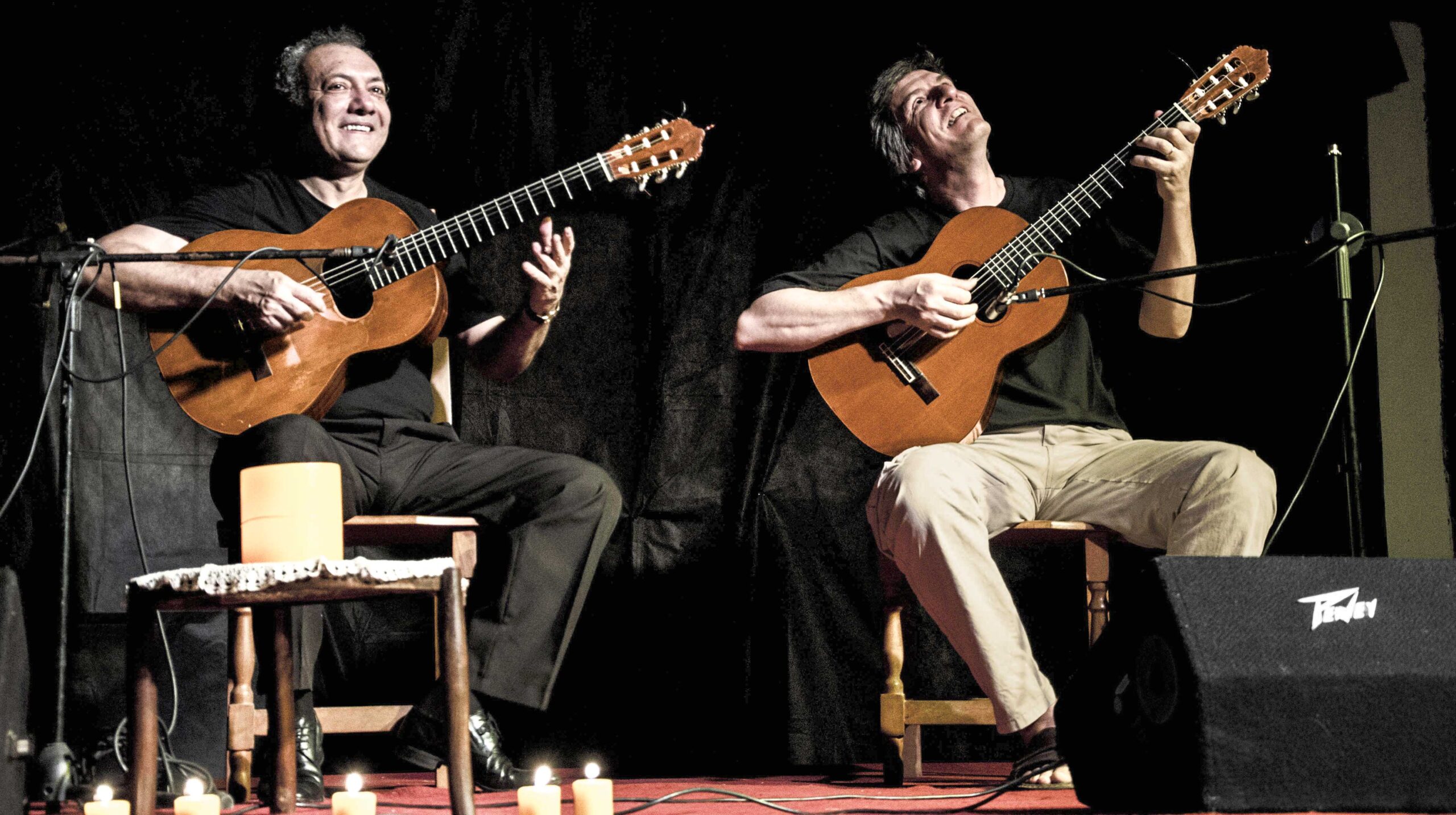This article is adapted from AQ’s special report on supply chains
Carlos “Negro” Aguirre, composer, performer and originator of musical projects, has been a fabled figure in the world of Argentine popular and folk music for decades. From his home studio in Paraná, in the province of Entre Ríos, about 300 miles up the Paraná River from Buenos Aires, he presides gently over an artist-oriented record label that he started with Ramiro Gallo and Luis Barbiero over 30 years ago. The label’s name, Shagrada Medra, comes from the title of a song Aguirre was playing in a dream Gallo had. The name also sounds vaguely spiritual—“shagrada” is one letter away from “sagrada,” the feminine form of “sacred” in Spanish, while the made-up word “medra” sounds ambiguously Sanskrit.
Shagrada Medra made the leap to digital at the height of the pandemic, in October 2020, releasing their back catalog on streaming platforms for the first time, along with new albums, and launching a series of hour-long conversations on their YouTube channel called La Hora Azul. Initially, Aguirre told AQ, he and his collaborators were reluctant to embrace streaming because of a shared affection for the physicality of the CD and the meanings that the objects add to the albums. One of his early releases featured an original watercolor painting by Pamela Villarraza that evolved over subsequent re-releases, and came with a seed of a tipa tree. But the downtime afforded by pandemic lockdowns allowed them to design a satisfactory way of reaching a wider audience via the internet.
Shagrada Medra’s catalog includes over 90 releases by some 50 artists from all regions of Argentina—which, in the context of the country’s Buenos Aires-centric music industry, makes the label’s focus remarkable. Aguirre explains that, while he always wanted to shine a light on musicians from the whole country, the founding of the project coincided with a period during which he was touring Argentina assiduously. He would often come back home with new connections, which provided the seed for the label’s initial releases. From then on, artists started to coalesce around the initiative.

Shagrada Medra
Music label based in Paraná, Argentina
Pictured: Co-founders Luis Barbiero, left, and Carlos Aguirre.
Shagrada Medra doubles as a kind of musical ecosystem, collecting musicians who share an acoustic sensibility—prominently featuring guitars, voices and accordions in pieces that often draw inspiration from Argentine folk styles. But there’s difference within that broader commonality. Styles range from Jorge Jewsbury’s elegant versions of classic tangos to Tere González’s minimalist songs (which hew closer to pop), to the jazz-inflicted intricacies of Aguirre’s own compositions.
A musical genre, chamamé, along with an instrument, the accordion, are typical of the folk music of what is known in Argentina as the Litoral: the region around the great rivers Paraná and Uruguay. Both genre and instrument figure prominently in the catalogue, thanks to artists like Julio Ramírez or the always refined duo of Rudi Flores and Ernesto Méndez. The Litoral is at the center of Aguirre’s aesthetic, and he considers it an international space shared by artists from the Southern Cone who work across “open borders,” as citizens of a “much bigger and diverse country.”
Shagrada Medra, too, has room for musical variety, including Flor Sur, a trio of cellos—a very uncommon instrumentation for a popular music group—that approaches songs and folk rhythms through a chamber music lens. Pianist Sebastián Benassi plays swinging folk music in the tradition of fusion pianists like Manolo Juárez or Hilda Herrera.
I believe that this respectful and collaborative approach to music creation and distribution is at the center of the project’s enduring success. It’s no small feat in an ever-changing music industry that is seldom conducive to the survival of independent players.






